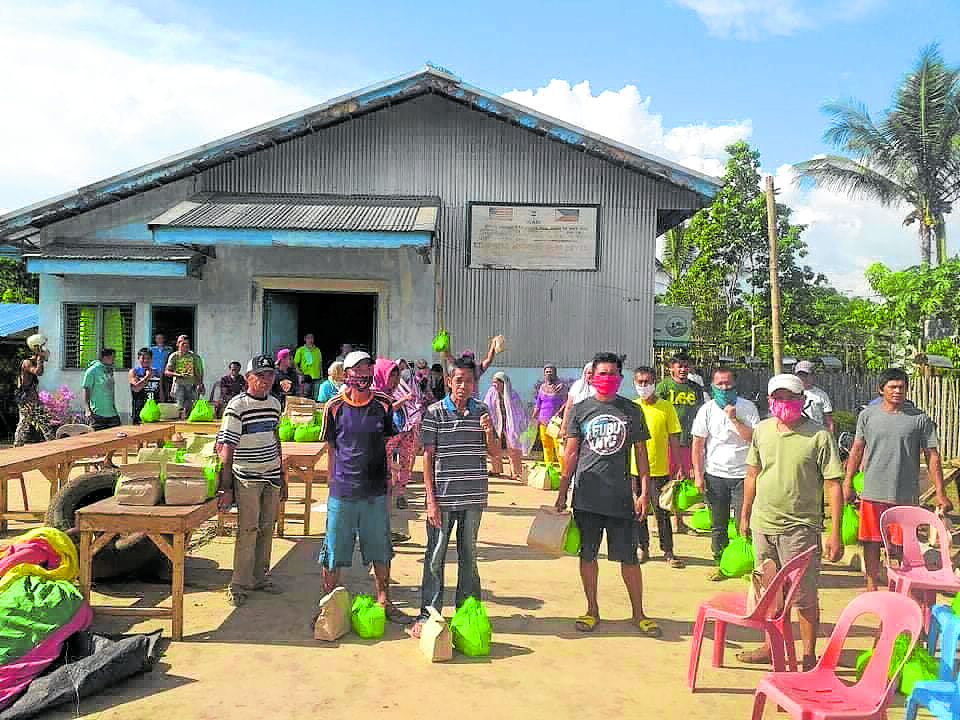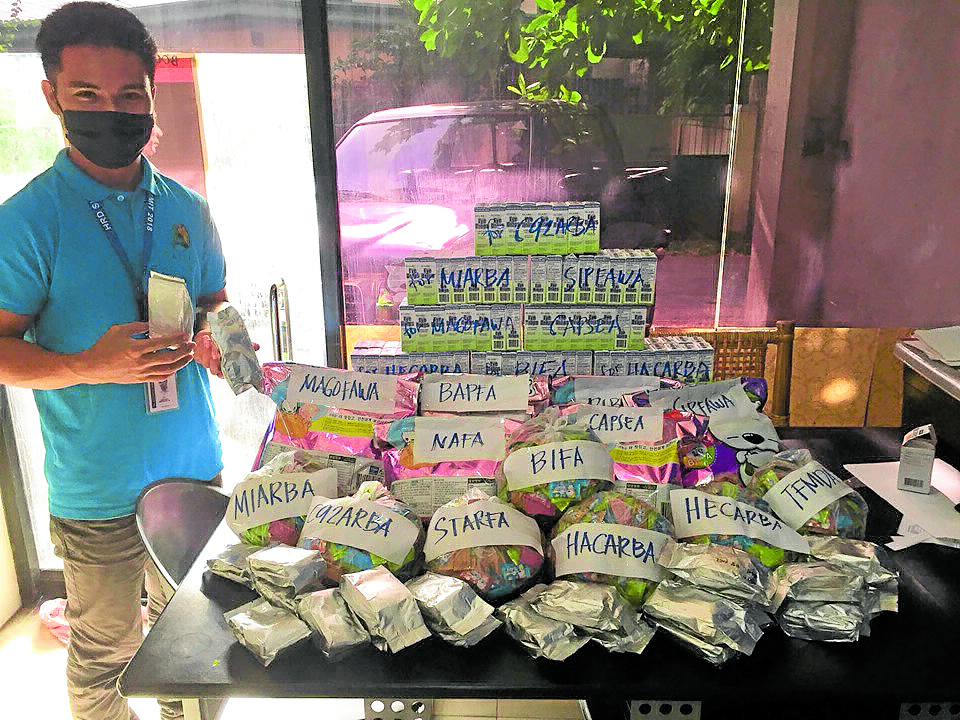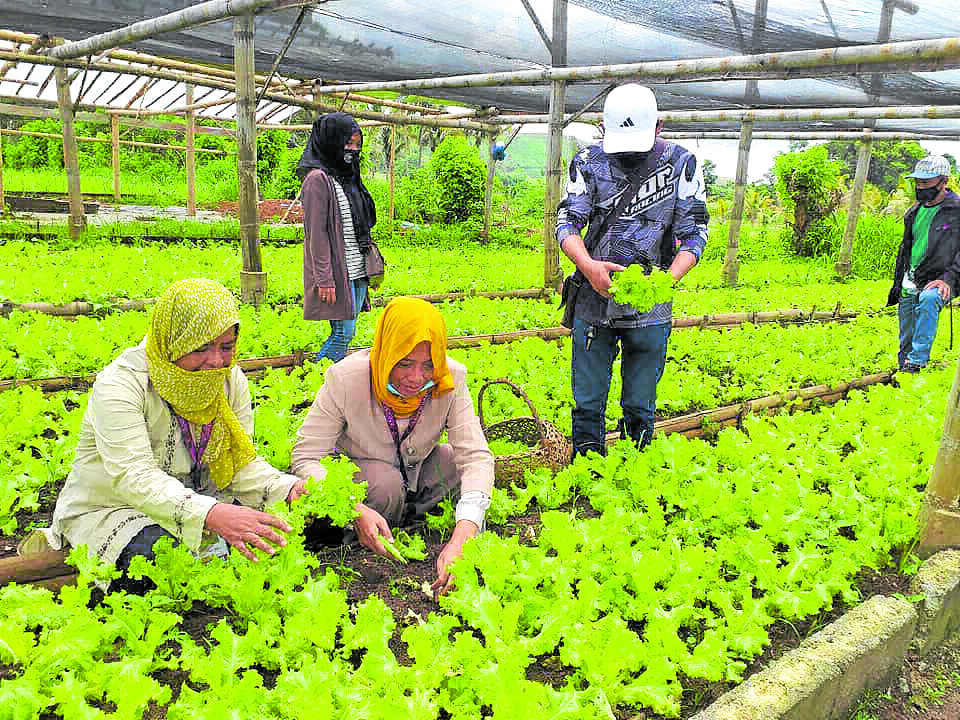Social enterprises a ray of hope amid recession

Maguindanao residents receive relief goods from Busikong Greenland Multi-Purpose Cooperative (BGMPC), a social enterprise . —PHOTOS FROM BGMPC
The country’s economic recession triggered by the devastating COVID-19 pandemic has closed many local businesses and left some 4.6 million Filipinos without a job in July. And as if the public health and economic crises were not enough, the already struggling local economy was further pummeled by consecutive strong typhoons.
Resilient social enterprises, however, provide a ray of hope. They are seen playing a big role in the recovery of the battered economy as they deal directly with vulnerable communities who need help the most.
For one thing, social enterprises are positioned to ensure the development of inclusive and sustainable food systems, said Institute for Social Entrepreneurship in Asia (Isea) founding president Marie Lisa Dacanay, adding that the sector can be relied upon to help provide the “unmet needs of people and communities” during crises.
Ensuring sustainability
An Isea study showed that over half of local social enterprises surveyed in the second quarter suffered a major downturn due to the COVID-19 pandemic. The already marginalized sectors were also severely impacted. However, those that engaged with social enterprises coped better.
Compared to other business models, social enterprises are built to help the poor and marginalized become key economic players while responding to the most pressing social problems such as environmental degradation.
They use the principles of entrepreneurship and business such as marketing, product development and logistical efficiencies to solve social problems.
There are around 164,000 social enterprises operating across the Philippines. In 2016 alone, the British Council estimated that they generated $21 million in revenues.
Many social enterprises are community-based and employ or are owned by the locals themselves. This is why most can quickly adapt to changes brought by the pandemic and changing climate, said Edwin Marthine Lopez, executive director of Alter Trade Foundation Inc. (ATFI).

Alter Trade Foundation Inc. (ATFI) distributes hygiene products to people’s organizations in Negros. —PHOTO FROM ATFI
ATFI is a fair trade organization and social enterprise operating in several farming communities in the Negros provinces.
A 2017 report by the British Council showed that 19 percent of local social enterprises work in the agriculture sector. With food security a major concern during crises, agricultural enterprises thrived during the extensive pandemic lockdown in the Philippines. In fact, Isea’s report showed that most of the social enterprises that sustained their operations were mostly in agriculture and essential services.
Some did not only sustain operations but even assisted the government on pandemic response.
Enterprises like ATFI and Bote Central coordinated with local government units and ensured that their workers received government assistance. ATFI also launched a COVID-19 information campaign translated in the vernacular for local farmers who had no access to the internet.
Bridging gaps in global climate action
Environmental group Greenpeace Philippines see social enterprises as essential, both in pandemic recovery and global climate action.
“Most social enterprises are located in communities. When a business operates in a place where they are living or working, it produces fewer carbon emissions because people have different options [for mobility] and for transporting goods and services,” Greenpeace Philippines campaigner Marian Ledesma explained, adding that social enterprises were “more conscious” of their waste management.
Many social enterprises also do not depend heavily on fossil fuels to keep them going. Global public health experts argue that climate change increases the risk of pandemics. This unfortunate link intensifies the call for businesses to commit to the fight against the climate crisis.
Although social enterprises can potentially fill in the gaps in global climate action, a deeper commitment from big corporations is a must, Ledesma said.
“Big businesses spout a lot of commitments and programs, but we don’t really see concrete actions in terms of their whole business operations. We do see CSR (corporate social responsibility) activities but it’s definitely not enough,” she said.
Work with social enterprises
Isea’s Dacanay said that social enterprises face the same challenges as other businesses during pandemics and disasters. They must also be viable in order to survive. “Those that coped and adapted better this year were the mature ones with a level of organizational and financial sustainability. Hence, the sector still needs more support,” she said.
Assistance can come from the Department of Trade Industry (DTI), which has rolled out its “COVID-19 Assistance to Restart Enterprises (CARES) Program,” a zero-interest loan assistance program for pandemic-struck micro, small and medium enterprises (MSMEs).
Under the program, MSMEs, including social enterprises, can borrow between P300,000 and P3 million with payment terms of 18-30 months. As of Nov. 19, the CARES Program has released a total of P1.1 billion worth of loans to 16,320 MSMEs.
“DTI regional and provincial offices are open to supporting social enterprises, especially those endorsed by groups such as Isea,” said Trade and Industry Undersecretary Blesila Lantayona.
Dacanay welcomed the change in the mindset of government agencies in the light of the displacement caused by COVID-19 as they are now more conscious of how they impact the lives of the marginalized sectors of society.
“They were not saying that before. But now, they are being pushed to think about issues that we’ve been harping about for a long time and to see social enterprises as [their] partners,” Dacanay added. —CONTRIBUTED
